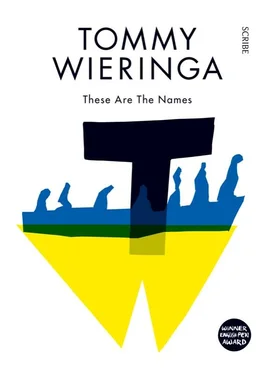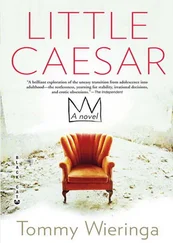But he wanted to wait for the right moment to undergo his immersion, perhaps until news came from the rabbi at Brstice (he had been waiting so long already). Maybe until he had stopped seeing his transition as a fraud.
The bread was in a basket. It was normal, unbleached white bread, not the usual braided kind. Still, Zalman Eder had blessed it. They ate soup, spoons ticking against porcelain, the rabbi bending over with his mouth just above the bowl. That was how they celebrated the start of the Shabbat. Beg’s lips had moved along with the song of blessing at the start of the meal. The rabbi’s voice grated; the melody hovered:
Shalom aleichem, malache hashores
malache Eilyon,
mimeilech malche hamlochim
Hakodesh Barech Hu.
If I hadn’t been here, Beg thought, no one would have known he was still around. But then the old man would still have been sitting here, by the light of two candles — a phantom, having grown translucent in his loneliness. One day someone would have thought about the old Jew, and they would have found him in his bed or at the bottom of the steps leading to the bath … and no one would have known that, with this, an end had come to six hundred years of Judaism in Michailopol.
For the second time, he helped himself to Chinese noodle soup from the terrine and said: ‘The woman died last night. Fortunately, I had a chance to talk to her — she wasn’t much more than a shadow. But her child seems healthy. His mother lived off of air and earth, she bore it all … I can hardly imagine it, it seems like too much for any one person. But she saw that it was good, that her child was going to live.’
‘Because of her sacrifice, the world started all over again,’ the rabbi said. ‘The Talmud says that he who saves a life, saves humanity. It actually says “a Jewish life”, but why shouldn’t that apply to the goyim, too?’
Beg thought about the boy-child who had cried so loudly in his arms and wouldn’t stop. Only when Beg, at his wit’s end, remembered about the nursing reflex in calves, how they clamped down and sucked on your hand with their slimy, toothless mouth — oh, that suggestive sensation, down to and including the shiver that ran through your scrotum — had he stuffed the tip of his little finger in the child’s mouth, and suddenly all was still. The woman looked at him, too exhausted for any expression. Her sharp cheekbones and pointed nose were already those of a corpse. She had come through the thicket of horrors, but had delivered her child safely to the other side.
Beg used his foot to slide a chair up beside the bed and sat down, so the baby could be close beside her. He slowly rocked the little bundle in his arms. Sometimes the woman’s eyes closed, but she forced herself to open them again. This was all the time she had with her child.
Finally, she lost the struggle to exhaustion, and slept.
Beg sat with the little boy in his arms and rocked him.
The rabbi had blessed the wine, too. Beg was not used to drinking wine. It pinched his cheeks from the insides. The level of the bottle descended quickly. Beg had slid his legs half under the table, and he saw the reflection of candlelight in the silver belly of the samovar. He said: ‘You told me that the Shabbat is also meant as a reminder of the flight out of Egypt …’
Fitfully, in a voice that sometimes raced ahead of his thinking and sometimes lagged behind, he talked about what was on his mind. Wasn’t it ironic, he said, at this very point, just as he was taking his first steps in the direction of the Everlasting, that something like this should happen to him? A group of people who had, in a certain sense, relived the journey of the generation in the wilderness, with nothing over their heads but the empty sky? They had fled from poverty and repression; the generation in the wilderness had escaped from the slavery of Egypt. They were different, not to be compared, but still the same. Mankind lost in the wilderness, looking up in despair: Lord, help us, protect us.
Lord?
He had no trouble imagining the despair of those who had remained below, when Moses failed to return from the mountain. The rebellion and the euphoria. The dancing and screaming and exorcism of fear in a wild rite.
‘And what if Moses really hadn’t come back from Mt. Horeb?’ Beg said. ‘Would we now be worshipping a golden calf? Why not — organised religions have worshipped everything: fire, the sun, bulls, demi-gods …’
‘All down the tubes,’ the rabbi sneered. ‘Show me one existing religion based on the sun, or fire. Or anything like that. Just one!’
‘They went down the tubes,’ Beg said, ‘but only after hundreds, maybe thousands, of years. And all that time they provided people with comfort — comfort, reassurance, and a life after this one. Everything you and I long for, too.’
The rabbi jabbed a finger at the air. ‘You’re staring so hard into the distance that you can’t see anything anymore! Thirty-five hundred years ago, the Everlasting gave us his Torah, which contains everything a person needs. That’s what you should be investigating. He lacks for nothing.’
‘But those people out on the steppes didn’t receive any answer; the heavens remained silent. Their imagination shaped a holy monster, or a monstrous holy-of-holies. I’m only thinking out loud about circumstances at some other point in history, unlike this one, when something like this … could have had a greater impact, if it had the chance to spread throughout entire tribes.’
‘But it didn’t happen, for heaven’s sake!’ The fire of the wine lit up in the rabbi’s eyes. ‘You should be taking into account what exists, not the non-existent! There’s plenty of room for doubt and discussion within the boundaries of the Torah itself. To deal with doubt we have Lernen, learning. That’s the way, lernen! Explore the beliefs, not the unbelief.’
Beg shrugged. ‘I thought that’s what I was doing. That’s all I do, I mean. But thoughts go where they will. How could I not see the similarities?’
‘I take it you know the story of the heathen who came to Rabbi Shammai and Rabbi Hillel?’
The rabbi told him how an unbeliever had come to Rabbi Shammai and asked him to teach him the Torah in the time he was able to remain standing on one leg. In a rage, Shammai sent him away.
Then the man went to Rabbi Hillel and asked again: ‘Teach me the Torah while I’m standing on one leg.’ Rabbi Hillel replied: ‘Do unto others as you would have them do unto you. That is the whole of the law. The rest is interpretation. Go now and learn.’
‘Go now and learn,’ Beg repeated. He nodded. ‘I’ll keep doing that. But I can’t close my eyes to the exceptional … the exceptional fact of a faith that arises almost before my eyes. A seed … A sacred moment, and four or five people who follow it. Who truly believe in what they think they’re seeing …’
‘What you’re seeing is idolatry. Humans worshipping another human, their equal — a consecrated perversion of themselves. I hope your interest is strictly intellectual.’
Beg grinned. ‘Let’s drink to a long life in good health. For just as you stopped being a Jew when your cook died, I will stop being a Jew once you’re no longer around.’
Zalman Eder laughed and shook his head. He raised the glass to his lips and drank. He was enjoying himself. He was awake.
CHAPTER THIRTY-SEVEN.Fried chicken
They had taken up housekeeping with the chicken lady. They gorged themselves on her supplies, and didn’t worry about the long winter to come. The floor was littered with empty cans, boxes, and cardboard packaging. They had pillaged her closet and spread out all the textile they could find around the woodstove. There they lay, purring like bloated cats. Her bed in the little niche behind the stove, with its ticked mattress of straw and its featherbed, had been appropriated by the poacher. The chicken lady herself had withdrawn to an old easy chair; through eyelids narrowed to slits, she watched the skinny ghosts who had invaded her home. They were hungry and sleepy. They stoked the stove till it glowed, bringing in wood from the lean-to outside, and wringing the neck of one chicken after the other. The blackened pan on the roaring stove was the epicentre of their contentment. There could be no more wonderful smell than the odour of a chicken hissing and popping in lard.
Читать дальше











